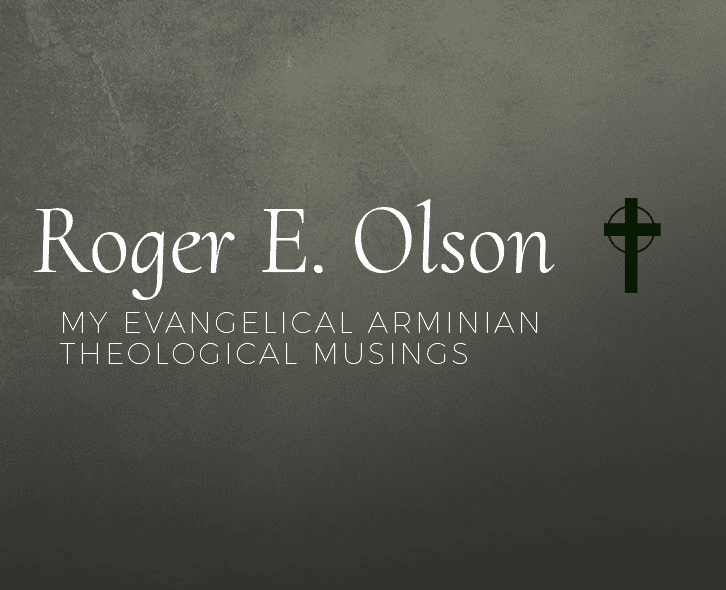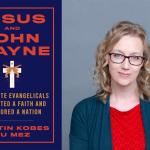
Roger E. Olson recently wrote an article “Who Is A ‘Progressive Christian’ and How Is That Different from ‘Liberal Christian?’”. In his article, he differentiates between what it means to be a liberal Christian and a progressive Christian. Although I agree with his differentiation between liberal and progressive, I was a bit surprised at his assertion that Progressive Christianity is simply a catch-all phrase for “younger Christians” who support LGBTQ+, women, and other social equality rights within the Church. Dr. Olson goes on to argue that Progressive Christianity is not a tradition, but rather it is a designation for differentiation between being evangelical and/or a fundamentalist from those that are not.
My problem with Dr. Olson’s article is not his understanding of Liberal Christianity, as I agree with his characterization that it is a theological movement in the tradition of Friedrich Schleiermacher. Where I take issue is his characterization of Progressive Christianity; namely, that it is not a tradition and that ultimately progressives are nothing more than socially aware evangelicals.
Our History
Believe it or not, Progressive Christianity does have a history and it begins in the 1980s with “postmodern Christianity”. This is not the type of postmodernism that was espoused by liberals such as Derrida. Instead, this was the postmodern Christianity that began in the UK within youth ministry movements, which eventually made their way to the U.S. Many of these ecclesiastical movements were concerned with two things: First, they were concerned with the way church was being done. They denied the organizational and programmatic nature of the Church and desired something more organic. Second, they were concerned with social issues – primarily how homosexuals were treated by the Church.
With that said, it is true that much of progressive Christianity comes out of various evangelical movements, such as Christian postmodernism, the emerging church, and the missional church movement. This history – although present in the latter part of the 1980s under the generic guise of postmodern Christianity, didn’t really become more organized until the late 1990s to the early 2000s.
The progressive movement was a product of two major phenomena: youth pastors trying to figure out how to minister to a new generation of Christians and postmodern evangelical church planting. Collectively, these churches were beginning to be known as “Emerging” Churches (churches that were emerging from out of the evangelicalism).
Individuals like Tony Jones, Doug Pagitt, and Brian McLaren were the main voices of the emergent movement. As such, they were also the target of much disdain by evangelicals who consistently labeled them “postmodern”. As a result of their work, various small churches throughout the country began to spring up– many of whom simply met in homes. The emphasis of these churches was to remain small so that they could stay connected to the community to which they ministered to.*
With the explosion of these various churches from the early 2000s onward, there were many variations of emergence that would later go under the generic title of Progressive Christianity. Today, you need not go any further than to look at the history of Patheos Progressive Christian to see the diversity of thought that has existed throughout the years, all capturing the diversity of this tradition.
We are NOT Evangelical and We are NOT Lost
To imply that a progressive Christian is simply a socially aware evangelical is more than insulting to many progressives. Many progressives spend a majority of their time speaking out against evangelicalism. Evangelicalism itself has done its part in creating separation between the two groups by calling progressives out as heretical, satanic, etc.
Also, if the only thing that separates evangelicals from progressives is their social awareness, I would point out that there exists an entire group that refers to themselves as being “liberal Evangelicals”, that also espouse the same social awareness.
Dr. Olson states the following: “I think MANY (I won’t say all or even most) ‘progressive Christians’ are on their way toward liberal Christianity because they feel like ‘exiles’ from their fundamentalist and conservative evangelical churches and families. They don’t know where to be ‘at home’—ecclesiastically and theologically—so they look toward liberal churches.”
I’m not sure that Dr. Olson is aware that there are a lot of progressive churches that exist. There ARE “homes” for those who find themselves being progressive. In fact, ProgressiveChristianity.org has an entire global network of these churches.
Concluding Thoughts
I think there is general confusion with the use of the word “progressive”. This is not the same thing as one calling themselves a “progressive liberal” in the political sense. Although it is true that you may find progressive liberals in Progressive Christianity, you will also find centrists and Republicans. Like many traditions, there exists a spectrum of beliefs and political leanings.
To his credit, I think that Olson’s article is useful for pointing out the lack of theological heritage that exists within Progressive Christianity. With that said, I think that we are really writing our own heritage now. I published an article a couple of months ago summarizing some of these beliefs. You can read that article HERE.
Progressive Christianity is like a living organism, it is active, evolving, and diverse. It tends to frustrate “modern” thinkers when they cannot organize a particular movement into a box with a label. One of the reasons I started the column UNenlightenment was to caution people against such boxes. Boxes that are forced upon us by enlightenment thinking oftentimes prevent us from being able to understand or appreciate diversity.
* Tony Jones, The New Christians, Dispatches From the Emergent Frontier (San Francisco, CA.: Jossey-Bass 2008) P.41
You can view my new UNenlightenment YouTube Channel HERE
You can view my new UNenlightenment Podcast HERE
You can follow me on FaceBook HERE














